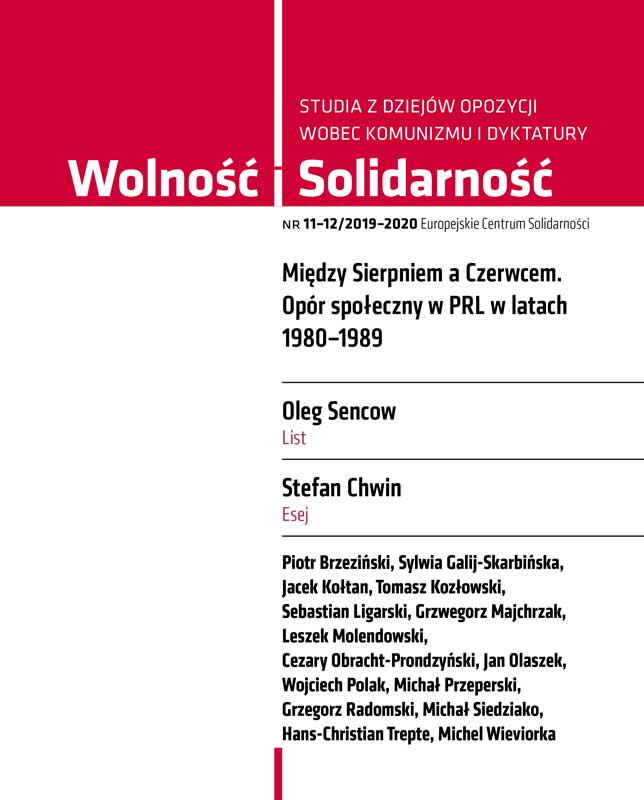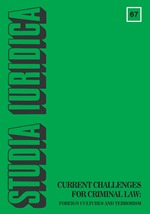

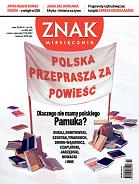
Keywords: powieść; novel; fikcja; fiction; Wit Szostak; Jerzy Jarzębski; Dariusz Nowacki; Przemysław Czapliński
More...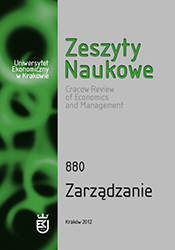
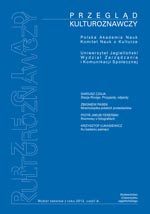
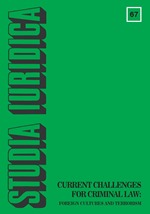
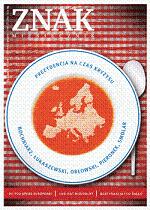
Keywords: redakcja miesięcznika znak; adres; kontakt; contact; adress
More...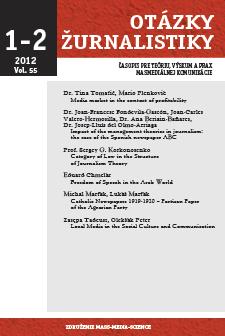
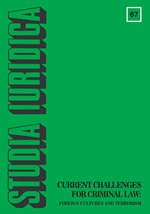
Keywords: lustracja; ustawa lustracyjna; PRL; współpraca; UB; SB; Sąd Lustracyjny
More...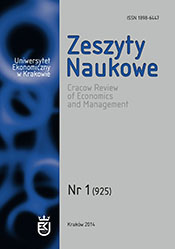
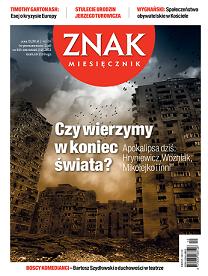
Keywords: koniec świata; the end of the word; Wacław Hryniewicz; ks. Robert J. Woźniak; Dariusz Kot; Zbigniew Mikołejko
More...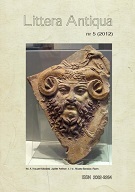
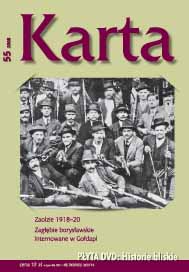

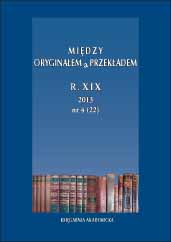
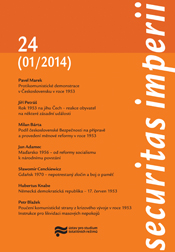
The study summarizes the events associated with workers’ protests in Gdańsk in December 1970, after the Polish communist government radically increased the prices of basic food. The Gdańsk events were part of a tragic context – workers’ protests and the subsequent massacre of protesters by military and police forces, led by the highest representatives of the Polish Communist Party – in the streets of an urban area consisting of three major Polish cities knows as the Tricity (Gdańsk, Gdynia, Sopot). The end of 1970 also saw the resignation of Władysław Gomułka from the leadership of the Polish Communist Party, and thus also of the Polish communist state. When Gomułka came to power in 1956, the public hoped that he could improve the unsustainable situation and liberalize the Stalinist regime. People believed in “a little stabilization”, but it soon became apparent that these were illusory expectations on the contrary, Gomułka’s policy led to “a little destabilization”. Gomułka managed to “survive” events in 1966 and 1968, involving mass protests against the communist government, but as a result of the protests in December 1970, caused by the deterioration of the economic situation, he was replaced by Edward Gierek. The immediate cause of the December events was a rise in prices announced to the public shortly before Christmas – for example, the price of meat was increased by 17.6%, flour by 16.6%, jam by 36.2%, groats and cereals by 20–30%, and building materials and solid fuels (wood, coke and coal) by 10–25%. Communists expected outbreak of protests – the army, security forces and secret services were on alert. On 8 December 1970, before the announcement of the price increase, General Wojciech Jaruzelski, the Minister of National Defence, issued an order regarding the rules of cooperation between the Ministry of Defence and the Ministry of the Interior in the fight against hostile activity, ensuring public order, security and defence preparation. A day later, an analogous decree to ensure public order and security was issued by General Kazimierz Świtała, chief of the Ministry of the Interior. The strike of the V. I. Lenin Shipyard employees in Gdańsk began on 14 December 1970, gradually joined by the employees of other factories – the next day there were about 10–15 thousand protesting people, who also attacked offices of the communist administrative bodies and destroyed police vehicles. Senior party members and commanders of security forces arrived in Gdańsk, and special police forces using combat vehicles, water cannons and chemical means were deployed against the demonstrators. At the same time, the politburo of the Polish Communist Party had a meeting, giving an instruction to use firearms and to shoot at legs. Commanders and officers in the place subsequently issued orders to use live ammunition, and the centre of Gdańsk turned into a battlefield – 20,000 demonstrators were faced by 5,000 members of the armed forces. The final result was tragic – 7 demonstrators were killed, hundreds of injured people were taken to hospitals, and 500 people were arrested. The strikes, which had spread to other towns (including Gdynia and Elbląg), continued, but as early as 18 December the forces deployed in Gdańsk managed to force the protestors to stop the strike. According to the police data, 2,300 people (of which 1,543 in Gdańsk) were arrested and 119 were taken into custody in January 1971 in connection with the December events. A special group was established within the Gdańsk secret police (SB), operating until 1973; its 7 operating teams were charged to monitor the Gdańsk factories and to prepare detailed “elaborations” of people who participated in the protests (2,300 people were registered, 1,114 of whom were “operatively elaborated”). These people were dismissed from their jobs, or even forced to move out of the town. Along with the operations of the aforementioned special group, the Gdańsk SB prepared a broader operation called “Autumn 1970”, which was conducted from 1970 to 1978; about 3,300 people were registered and monitored as part of the operation. However, the tradition of “December 1970” became an important part of the identity of Gdańsk inhabitants and formed the basis of the later anti-Communist movement in the Tricity. Beginning in December 1978, regular meetings were held at the Gdansk shipyard to commemorate the December events; in August 1980, the erection of a memorial to the victims was finally approved – the memorial was unveiled in December of the same year, and it became one of the symbols of the struggle for national restoration against the evil posed by the communist regime.
More...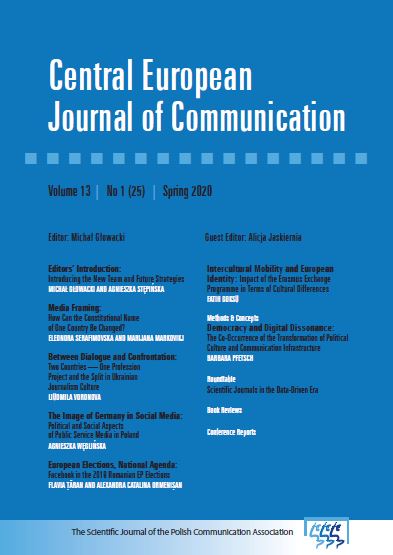
Keywords: TVP;Germany;social media;an image;content analysis;discourse analysis;
The goal is this paper is to analyze the image of Germany and Germans in social media platforms of Polish Television (Telewizja Polska — TVP). Through a web content analysis the study aims at presenting main societal and political aspects in the daily functioning of public service media. The outcome is therefore presented in a broad social and historical context, including relations between Germany and Poland. Th e main factors shaping bilateral relations such as stereotypes, trans-border cooperation and the presence of the German minority in Poland are presented. The empirical part of the paper comprises content and discourse analysis of TVP’s social media related to the image of Germans and Germany over a period of three months in 2018.
More...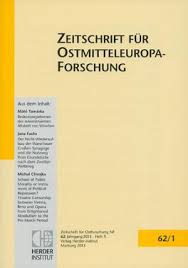
Keywords: Belarusians; Polish Armed Forces; Peacetime (1921-1939);
Belarusians in the Polish Army were the third most numerous ethnic group after the Poles and Ukrainians. Their participation in the military has never exceeded 10 per cent of armed forces personnel. Belarusian soldiers were often characterised by a relatively low level of national consciousness and instead often considered themselves to be “tutejsi” (locals) and a large proportion of them were illiterate. Compared to representatives of other nationalities, they were more inclined to adopt Polish culture. The policy of the military authorities towards Belarusians was the consequence of a general Polish national policy of assimilating ethnic minorities. Henceforth Belarusians in military service contributed to their own Polonisation. With regard to Belarusian conscripts, enrolment limits were set at commissioned and non-commissioned officers’ schools. Thus many Belarusians only managed to make a career in the army passing Poles. Politically, Belarusian soldiers were often passive. However, in some cases radical parties had considerable influence on them, namely the Communist Party of Western Belarus and its dependent Belarusian Peasants’ and Workers’ Union.
More...
Keywords: Nationalization; pragmatism; state institutions; minorities in Poland; 1918-1939;
Drei Monate nach dem gewaltsamen Maiputsch fand am 18. August 1926 in Warschau eine Kabinettssitzung statt, an der neben Marschall Józef Piłsudski und Ministerpräsident Kazimierz Bartel die Chefs aller wichtigen Ressorts der neuen Regierung teilnahmen. Einer der Tagesordnungspunkte war die Diskussion eines von Innenminister Kazimierz Młodzianowski eingebrachten Entwurfs zur künftigen Ausrichtung der Minderheitenpolitik.
More...